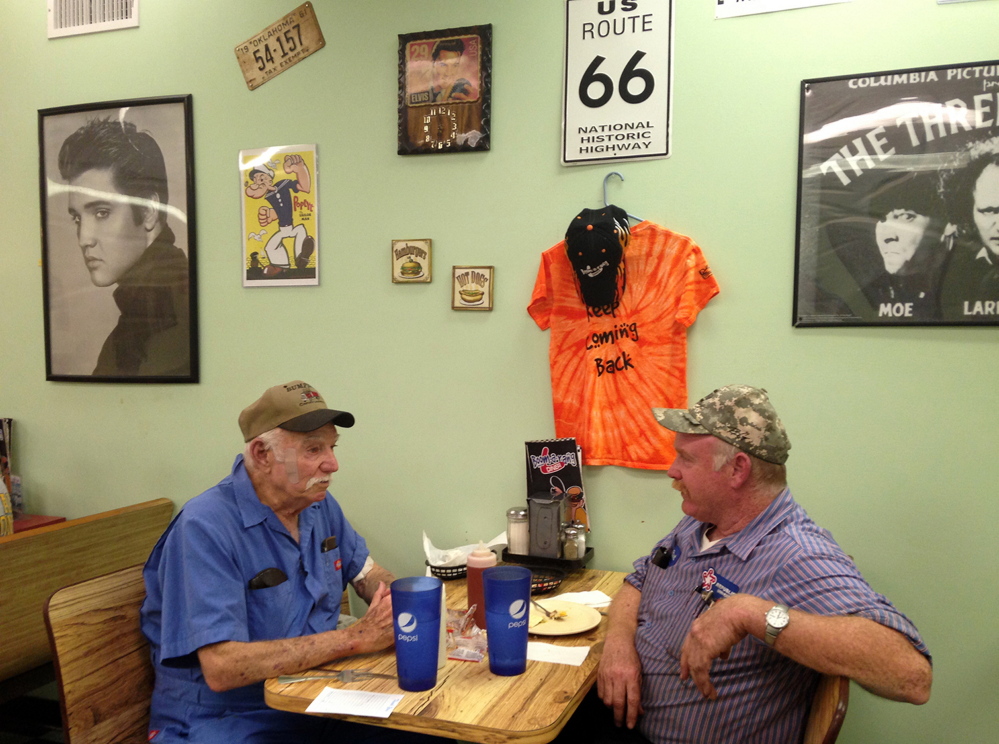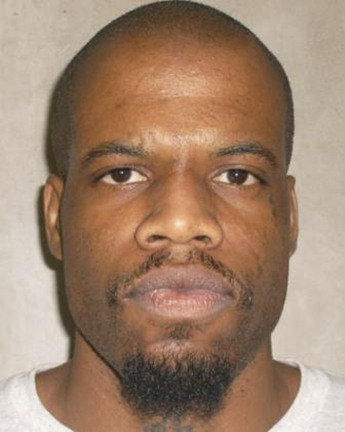McALESTER, Okla. — Geneva Miller was a bit annoyed as she dug into an egg salad sandwich at the Heavenly Delights bakery, where wooden signs line the walls bearing affirmations of food and family.
She can’t believe that her state, with its strong support for capital punishment, is being pilloried across the nation because of one botched execution.
“We’re just crazy about how everybody thinks Oklahoma is bad for supporting the death penalty,” Miller said. “We just don’t understand how they could think otherwise – that it wouldn’t be right.”
New details continued to spill out this week about the fumbled execution of inmate Clayton Lockett, 38, who died of an apparent heart attack Tuesday after authorities halted a lethal injection that caused him to convulse and a vein to burst.
The case prompted state officials to order a review of the way executions are carried out and has revived a national debate over whether the death penalty is inhumane. But for Miller and many other Oklahomans, Lockett – who shot and ordered the live burial of a teenager – got exactly what he deserved.
‘EXTREMELY TROUBLING’
“It’s like the Lord said: You reap what you sow,” said F.W. Sexton, who had just finished eating at a diner in Checotah, which bills itself as the Steer Wrestling Capital of the World. “And she died a terrible death.”
President Obama, who supports the death penalty for heinous crimes, said Friday that the Oklahoma case was “extremely troubling” and should prompt a re-examination of the way executions are carried out.
There are “significant questions about how the death penalty is being applied” around the country, he said. “And this situation in Oklahoma, I think, just highlights some of the – the significant problems there.”
In McAlester, Checotah and other towns in the verdant, rolling landscape of eastern Oklahoma, there is some discomfort about how the execution played out, and many agree that changes should be made to the system. But there is little argument about the final outcome for Lockett.
“I think he got what’s coming to him,” said James Barr, who was buying a coffee at the Harbor Mountain Coffee House in McAlester, about two miles from the Oklahoma State Penitentiary, the site of the botched execution.
Lockett was convicted of murder and other charges, including rape, in 2000 after he and two accomplices attacked two young women, one of whom Lockett shot twice. Lockett then ordered his accomplices to bury the 19-year-old shooting victim alive, witnesses said.
Capital punishment is broadly popular in Oklahoma, where voters chose Republican presidential candidate Mitt Romney by a 2 to 1 margin over Obama in 2012 and where Gov. Mary Fallin and other Republicans dominate state government.
Ryan Kiesel, executive director of the American Civil Liberties Union of Oklahoma, said there will “definitely be litigation” in the aftermath of Lockett’s death.
And he added that however popular capital punishment remains in the state, Lockett’s death has sparked concerns among proponents about how the process is carried out. “This brings up the question, ‘Is there a humane way to deliberately take the life of a person?’ ” he said.
Aaron Totani has wrestled with such questions since Lockett’s death. The massage therapist from McAlester says he is a proponent of capital punishment and believes that prisons should bring back chain gangs.
But Totani voiced concern over the bungled execution and how Lockett may have been treated beforehand. Officials said Lockett was Tasered and refused to take food in the hours before his death.
Totani also wondered whether Lockett was properly hydrated, as a lack of fluids can cause veins to collapse. Medical authorities had to search for a suitable vein, and a doctor ended up inserting the IV tube into Lockett’s groin.
The botching of the execution, Totani said, was “a bit torturous.”
But Ron Grubis, a retired high school principal, says he believes that it was a medical accident and thinks that an ongoing legislative controversy in Oklahoma over where the execution drugs are obtained is unwarranted. But he doesn’t understand why and how an execution should go bad.
“Why is it so hard to kill anybody with drugs? Shouldn’t it be simple?” Grubis asked.
Grubis, a staunch supporter of capital punishment, believes that death row inmates should be able to choose how they die.
“We can go back to giving people a choice,” he said. “Let’s go back to the firing squad. There’s no such thing as a totally painless execution.”
‘LET’S GET THIS RIGHT’
In McAlester, a town of about 18,000 some 90 miles south of Tulsa, executions have become a routine occurrence at the hulking white penitentiary.
The facility is depicted in John Steinbeck’s “Grapes of Wrath” as the prison that Tom Joad is released from. It was also the site of one of the nation’s worst prison riots in 1973, when three inmates died and more than $20 million in damage occurred.
Richard Coleman, a retired police officer from Tulsa, sat in a McDonald’s in Eufaula.
Coleman said he supports the death penalty for heinous crimes. He has met with prisoners and brought teens to the penitentiary as part of a “scared straight” program. The students saw “Sparky,” the disabled electric chair, in a museum on the property.
But Coleman said that his decades in law enforcement have led him to believe that the state is too concerned with locking people up and not enough with rehabilitation.
And while he thinks lethal injection is the most humane way to kill someone, the problems with it are troubling.
“Oklahoma has a bad enough reputation. We don’t need this,” he said. “People think we’re rednecks and everything. Let’s get this right.”
Send questions/comments to the editors.




Success. Please wait for the page to reload. If the page does not reload within 5 seconds, please refresh the page.
Enter your email and password to access comments.
Hi, to comment on stories you must . This profile is in addition to your subscription and website login.
Already have a commenting profile? .
Invalid username/password.
Please check your email to confirm and complete your registration.
Only subscribers are eligible to post comments. Please subscribe or login first for digital access. Here’s why.
Use the form below to reset your password. When you've submitted your account email, we will send an email with a reset code.